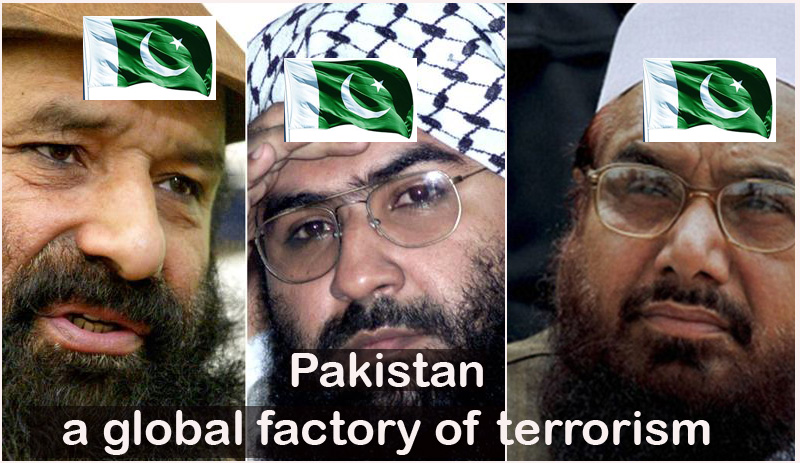No consensus on including JeM in BRICS’ Goa Declaration
October 17, 2016
By Snehesh Alex Philip and Vilas Tokale
Mobor (Goa): A consensus on including UN- proscribed terror group JeM in the Goa Declaration of the BRICS Summit, which called for tackling terrorism, couldn’t be arrived at as other nations in the bloc are not affected by Pakistan-based terrorism, a top Indian diplomat said today.
The diplomat, however, said India is “quite happy” with the document.
“I guess it does not concern them mainly, BRICS. It affects us. Because Pakistan-based outfits are also focused on India in terms of activities,” said Amar Sinha, Secretary (Economic Relations), Ministry of External Affairs here.
“So since…it (doesn’t affect them), I guess we could not get an consensus on actually including both,” he said, when asked, why the Declaration doesn’t mention Pak-based terror groups, especially JeM, which is proscribed by the UN, even when it mentions ISIS.
Sinha pointed out that the statement mentions ISIS and various other affiliated organisations.
“And I think there is a reference of terrorists organisations which are designated by the UN,” he said.
MEA spokesperson Vikas Swarup said the Goa Declaration should be considered in continuation of the declarations from previous Summits.
“Please look at the language you had in previous summit.
Look at the language on terrorism you have now and you will see that definitely it is a much more strengthened language on terrorism,” he said.
Replying to a series of questions on the issue of terror at the press briefing that they held after the conclusion of the BRICS Summit, Sinha said the multilateral summit should not be reduced to just the issue of terrorism.
When a different question was asked later, he quipped, “Thank you for asking something other than terror. For a minute I thought BRICS had become BTRICKS.”
He also defended non-inclusion of the word “cross-border terrorism” in the Goa Declaration saying the focus should be on idea that there cannot be a political justification of terror.
He said it was important India was able to bring everyone onboard with its ideas.
He explained the declaration accepts there cannot be a political justification for terror and asks countries to take comprehensive steps against it.
He said the text on terror in the Declaration conveys to all countries that action has to be taken against terror.
“I think the message is very clear and you don’t have to spell out everything. You have to see what is the underlying thrust,” he said.
Asked about Chinese President Xi Jinping’s speech in which he talks about the need to focus on root causes, Sinha said he does not know what he meant by “root causes”.
He said China has always said one needs to sit down and that he does not don t think they were referring to root causes of terrorism.
If that were the case, they would not support the CCIT, he said.
The senior diplomat underlined that India was “satisfied” with the Goa Declaration.
“Each country in such negotiations starts from the national position and then it all gets negotiated over long session until you reach a conclusion that is acceptable to everyone.
“We are obviously not looking…that our national position needs to be sort of signed on dotted lines by other countries,” he said.
He pointed out that the declaration mentions terrorism as an unprecedented global threat to peace and security.
“These are strong words. I don’t think they are underplaying. We are quite happy with it,” he said, adding this is not the last summit and the one of the NSAs is coming up.
PTI
Recent Stories
- Surat Police nab a Nigerian national from Mumbai in MD Drugs case
- Azaan from loud speakers of a mosque disturbing exam; student approaches police
- Uproar over alleged religious conversion event in Pal area of Surat
- GPSC announces recruitment for over 2,800 positions in Health Dept
- ACB nabs a Police man in bribe case in Bhavnagar
- Rs. 25.68 lakh worth MD drugs recovered from Naranpura based house
- Bulldozer drive continues on second day in Vadodara
